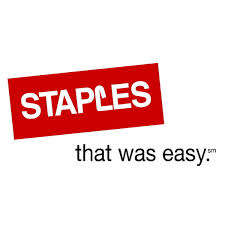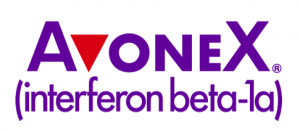Think of people you know, and name their personality traits. Are they funny, smart and loyal? Caring, diligent and non-judgmental? Or could they be all these things and more, but at different times? The more sophisticated and complex the person, the more personality traits they evoke because they live and thrive in a multi-faceted world, whereas the average person might only evoke, say, two or three traits. There is no right answer, nor any reason to suppose that a person with three traits is any less of a friend or good person than one with more than three. The same is true for many healthcare brands.
How many brand personality traits should a brand have? This is a question I get asked frequently. Some feel this inquiry is on the order of who makes the best pizza in New York City. That is, a relatively subjective matter depending on personal taste. I disagree. A Brand Personality works in the service of the brand, not the other way around. One doesn’t conform a brand to a fixed number of personality traits; one develops a personality that suits the brand’s needs, and this includes having as many or as few traits as the individual brand situation demands. Further, healthcare brands often need an expanded personality because the unique complexity of customers and venues calls for the brand to act differently in different circumstances.
First, let’s examine how brand personality is used to engage customers. The development of a Brand Personality is an essential component of the brand strategy. If the Brand Commitment is the promise the brand makes to customers, then the Brand Personality defines the tone and manner of how that personality gets delivered in promotional materials and brand behavior. Here are two consumer service brands that make the same Brand Commitment: we have a comprehensive inventory to keep your work life on track.


Both tag lines are excellent examples of such because they are short and speak directly to the customer (vs. about themselves). Watch how the two different brand personalities guide the tone of their tag lines and create brand differentiation. Staples’ That was easy reflects the personality traits of Fun, Intuitive and Smart: the line sounds like work isn’t really that hard because it is expressed with a refreshing sense of Fun. It also evokes the idea that—no matter what the challenge—Staples is confident that they can help the matter get resolved (Intuitive). On the other hand, Office Max’s Work with us opts for a tone of voice that is Straightforward, No-nonsense and Approachable. It is designed to appeal to people who are all business, and cannot be distracted by “fun.” Same promise but a different personality means successful differentiation between the two brands.
Three traits seem to work fairly well for these brands. After all, they have a fairly homogenized set of customers (people who use office supplies and office services). However, let’s take a look at the different and more complex venues in which prescription brands need to exhibit their personalities.
Take the multiple sclerosis (MS) brand, Avonex. It has a personality with five traits:
Confident
Uncomplicated
Persevering
Protective
Supportive
What’s the rationale? Because Avonex must appeal to a highly heterogeneous customer set in a highly uncertain pathology, it has to have a personality that appeals to different people in different situations. And here’s the unspoken argument for those who believe there should be no more than two or three traits: if the brand does have, say, five to seven traits, no one is advocating that all of them are present at every given moment. There is always a need to prioritize based on the task at hand. Let’s take a look at the logo design.

Here, the primary traits that inspired the design are Confident and Uncomplicated. You can see Confidence in the bold, letter shapes and in the choice of the purple color, which evokes a regal and authoritative presence. You can see Uncomplicated in the unadorned letter shapes (i.e. no serifs, ligatures or fancy type flourishes). You can also see Uncomplicated in the choice to make the A and X larger than the rest of the letters, revealing the word “one” in the body of the name. Avonex has the least complicated dosing form of its injectable competitors: once weekly, vs. the more complicated every other day or three times weekly.
Why aren’t these two traits enough? Because MS is a serious, chronically debilitating disease with a sinister prognosis. No one can tell when an attack will come, or how severe it will be. So in education and promotion, it must show a different side of itself to customers. It should retain its Confident tone of voice because people lack assurance about the disease. And because MS is a mysterious illness affecting different people in different ways, it must be comprehensibly Supportive. The brand works to develop lifestyle advice for patients to read, and supports social networking activities among MS sufferers.
But are Confident, Uncomplicated and Supportive the side of the brand that will engage healthcare professionals? Doctors treating this enigmatic condition need Avonex to help them do their primary job: guard patients from the effects of disease, hence the brand needs to put forth the idea that it is Protective. And what about actuaries at the health insurance companies who must consider authorizing payment for such an expensive and chronic therapy? They need to know if the long-term outcome of using the brand is worth the continuous funding they are using to subsidize treatment. Avonex cannot just project the idea of Confidence to this audience. It must also convey that it will be worth it over the course of the patient’s life, hence Persevering. This is done by providing payers with ongoing data about the brand’s effect on long-term outcomes. A chronic illness deserves a solution that won’t quit, one that will be steadfast and determined in pursuit of being Protective.
Another aspect that gets misunderstood when developing a healthcare personality is that personality traits are not all equal. The first three traits of the Avonex personality—Confident, Uncomplicated and Persevering—are called Inwardly Focused traits: traits about the brand itself. However, the Avonex personality recognizes that having traits that are only inwardly focused is insubstantial for the solution it presents. The three Inwardly Focused traits are balanced by what are called Outwardly Focused traits: traits that the brand cannot claim without the permission of the customers. Avonex must earn the quality of Protective by having people feel they are being protected. Similarly, it must earn the trait of Supportive by having people make that judgment for themselves. You cannot claim you’re being supportive; that’s something that other people need to say about you for it to have genuine meaning.
There is one other kind of personality trait that is appropriate for some brands that have an extraordinary personality. These traits are called Forwardly Focused traits: traits that do not reveal themselves immediately, but do so over time. Prozac earned its forwardly-focused trait of Pioneering because, over time, it transformed the treatment of depression from a condition that only Psychiatrists should approach to one that is primarily treated by general practitioners. (Unlike antidepressants that preceded it, Prozac’s dosing was very simple; and more importantly, depressed patients could not overdose on Prozac, thereby making it safer to advocate by less specialized physicians.) Similarly, the brand Lipitor earned its forward-focused trait of Liberating, but not for reasons of which healthcare professionals approved. When Lipitor was first launched in the 1990s, its inwardly-focused trait of Powerful and outwardly-focused trait of Reassuring were immediately established. The brand could drop cholesterol levels like a hammer compared to the competition. In fact, use of Lipitor became so prevalent (over $12 billion in annual sales before the patent expired), that people could take the drug, keep their cholesterol in the normal range, yet still eat fatty foods and recline on the Barcalounger for hours at a time. Thus, Lipitor earned its forwardly-focused trait of Liberating because it freed people…from the need to diet and exercise.
The best brand personalities are the ones that help brands engage customers. And usually those personalities are a balanced mix of Inwardly- Outwardly- and Forwardly-focused traits. But more importantly, they do not conform to a fixed number of traits. So if you are a marketer or an agency strategist, and someone questions the thesis advanced here, tell them that they are projecting a personality that is Rigid, Indiscriminate and Short-sighted. Then refer them to this blog post.

Hi – It’s good to read such interesting stuff on the Internet as I have been able to discover here. I agree with much of what is written here and I’ll be coming back to this website again. Thanks again for posting such great reading material!!